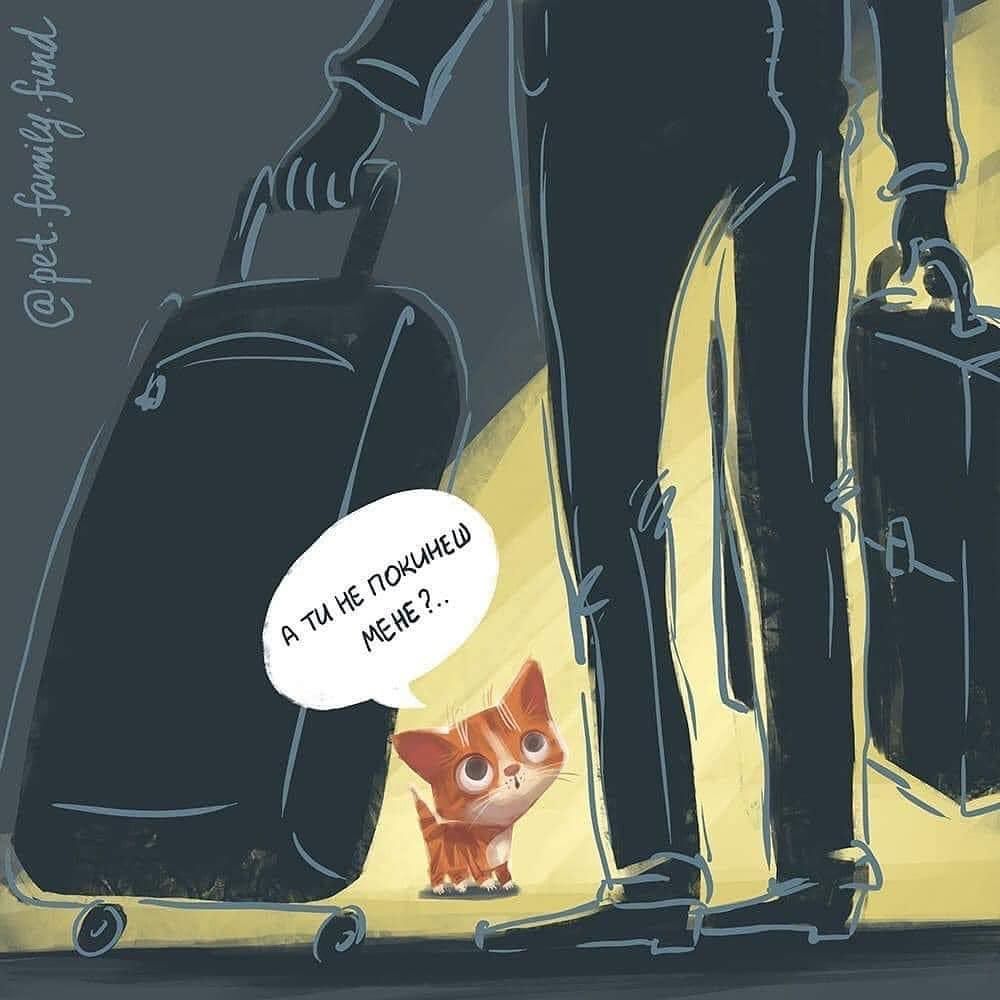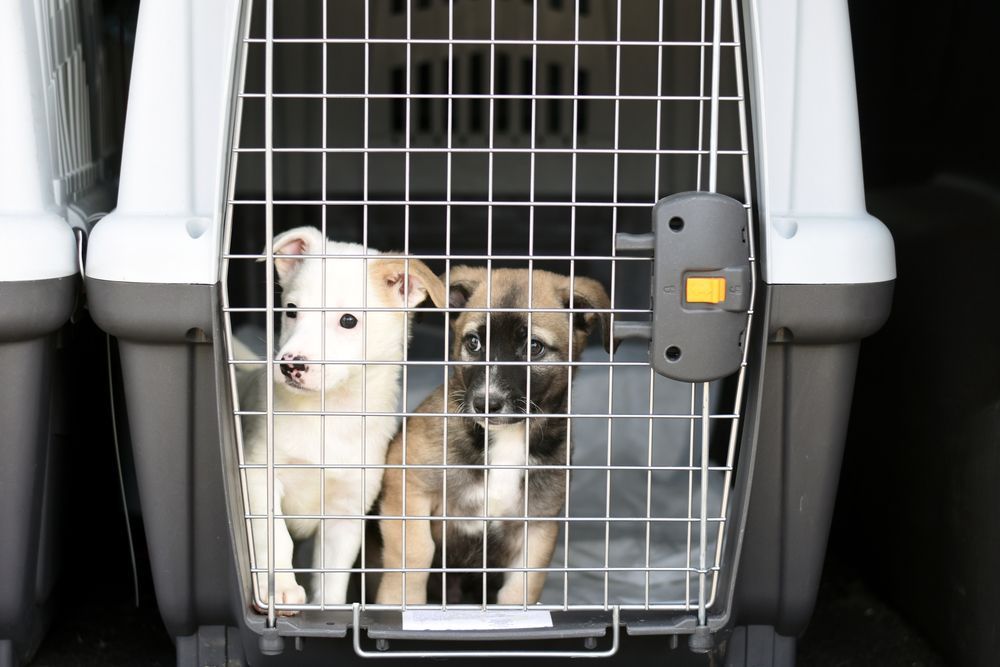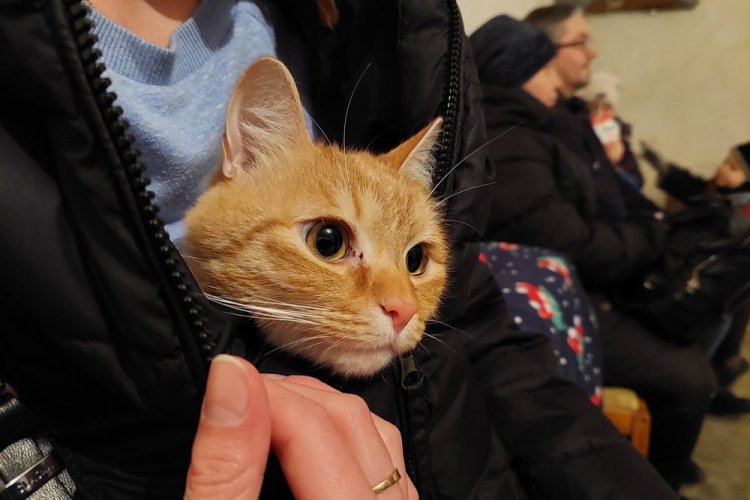On February 24, 2022, Russia launches a large-scale military invasion of Ukraine. At such a disturbing time for our country, pet owners are concerned not only about their own safety, but also the safety of their pets.
EcoPolitics has collected tips on how to protect your pets during martial law.
Ukrainian animal rights organization UAnimals urged Ukrainians not to leave their animals on the street or in an apartment. Animals can be taken to bomb shelters and shelters, and many friendly neighbors have allowed animals to cross the border without a veterinary passport.

Alarm bag for a pet:
- Stock of fodder, which will be enough for at least a month.
- Several bottles of drinking water for the animal.
- Bowls for feeding and water.
- Cleaning products in case of impossibility of walking.
- Veterinary first aid kit.
- Carrying, harness, leash.
- Documents.
- Couch and warm blanket.
- Favorite toys.
Pet First Aid Kit
As with humans, animals also need to have their own first aid kit, especially during emergencies. UAnimals offers a basic set of first aid kit to help provide first aid to a pet:
- electronic thermometer;
- tweezers;
- syringes;
- scissors;
- gauze bandage;
- self-fixing bandage (Copoly);
- protective shoe (will protect paws in case of a cut);
- zinc oxide in the form of powder (stops blood in case of minor injuries);
- disinfectants: chlorhexidine, hydrogen peroxide, miramistin;
- Levomecol ointment;
- "Enterosgel" (children's dose indicated on the package);
- antihistamines: suprastin, diphenhydramine (intramuscularly)
- antispasmodic - papaverine (intramuscularly), but-spa;
- analgesics: analgin (intramuscularly or orally);
- meloxicet / meloxicam (subcutaneously);
- antidotes in case of poisoning;
- vitamin B6 ("Pyridoxine") (intravenously or intramuscularly);
- vitamin K1 ("Kanavit").
After first aid, be sure to contact a veterinary clinic to make sure the animal's health is safe.
Documents for crossing the border with an animal:
- veterinary passport of international standard;
- the passport must be marked with all necessary vaccinations;
- microchip introduced during rabies vaccination;
- analysis for antibodies to rabies, made not earlier than three months before the intersection;
- certificate #1-VET, which is issued at the state clinic three days before departure.
Also, be sure to hang the address book and avoid walking without a leash.

Transportation of animals and border crossing
Due to the fighting in Ukraine, some countries have simplified the conditions for Ukrainians and their animals to travel abroad. Poland, Hungary, Romania and Slovakia allow undocumented animals, everything can be done at the border.
At the Slovak border, it works like this:
– at all four border crossings animals are left without documents, they do not need to have a passport or vaccination card;
– animals that do not meet normal conditions are sent to quarantine (not less than 5 days), which is arranged by Slovakia.
– the person leaving leaves the form with the necessary information at the border, which is transferred to the State Veterinary Administration (ŠVPS). SEPS will transfer the form to a specific station, where the animal will be quarantined;
– she will be in touch with the owner and return the animal to him after quarantine;
– The Czechoslovak Castration Program is ready to provide shelter for homeless animals.
The procedure for importing animals into the Czech Republic is as follows:
– dogs, cats and ferrets can enter the country without marking the animal with a microchip or tattoo, and no other documents and examinations are required;
– after entering the Czech Republic, the animals are subject to a 10-day quarantine;
– within 72 hours the animal is clinically examined by a private veterinarian to rule out rabies;
– from the fifth to the tenth day of quarantine, the animal is re-examined for rabies. If the animal has no symptoms of rabies, it is vaccinated no later than the tenth day of quarantine and issued a certificate
– other pets are not restricted in any way.
Detailed information can be found on the websites of :Poland, Hungary, Slovakia and others.


